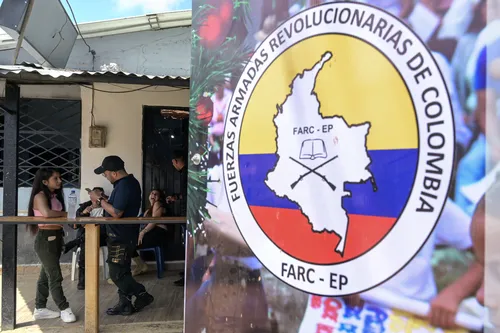
The Colombian government opened this Sunday (3) the 4th dialogue table with the main dissent of the Revolutionary Armed Forces of Colombia (FARC), the Central General Staff (EMC). This cycle of debates will be held until March 9 in the city of San José del Guaviare.
In a statement, the Colombian government’s High Commissioner for Peace said that the delegations will discuss agreements on territories, social participation, pedagogy and communications. The head of the government delegation, Camilo González Posso, stated that since the beginning of the dialogues, there has been progress in implementing a ceasefire. He also stated that the way in which these advances are made “depends on the behavior of the parties”.
The deputy head of the UN verification mission in Colombia, Raúl Rosende, asked that the two sides continue with the dialogues and that these dialogues “in the medium and long term should generate benefits and concrete results”. The governor of Guaviare, Yeison Rojas, celebrated the meeting being held in his state. According to him, this allows both the government and EMC “to understand the reality in which communities live”.
The EMC had a ceasefire agreement with the government since October 2023. In January, the two parties extended the truce until July 15.
Throughout 2023, the relationship between the government and EMC was tense. A signed ceasefire valid in the first half of the year was suspended after the murder of four indigenous minors.
Other groups
The Colombian government already has peace negotiations with another FARC dissident group, the armed group Segunda Marquetalia. In February, the two parties announced that they committed to starting negotiations for a definitive peace agreement and “immediately” establishing prior agreements to reduce clashes.
The National Liberation Army (ELN) also has an agreement signed with the government. After the 6th round of negotiations held in Cuba, the two parties agreed to extend the ceasefire until August. The group was the first to sign a Peace Agreement with the Colombian State in 2016, during the government of Juan Manuel Santos.
Permanent dialogue with armed groups is one of the policies implemented by Petro since the beginning of his mandate in 2022. The president transformed Total Peace into a State policy following the approval of law 418, which establishes the Colombian State’s commitment to maintain contact to negotiate an end to clashes between these groups.
Editing: Rodrigo Durão Coelho
Source: www.brasildefato.com.br

